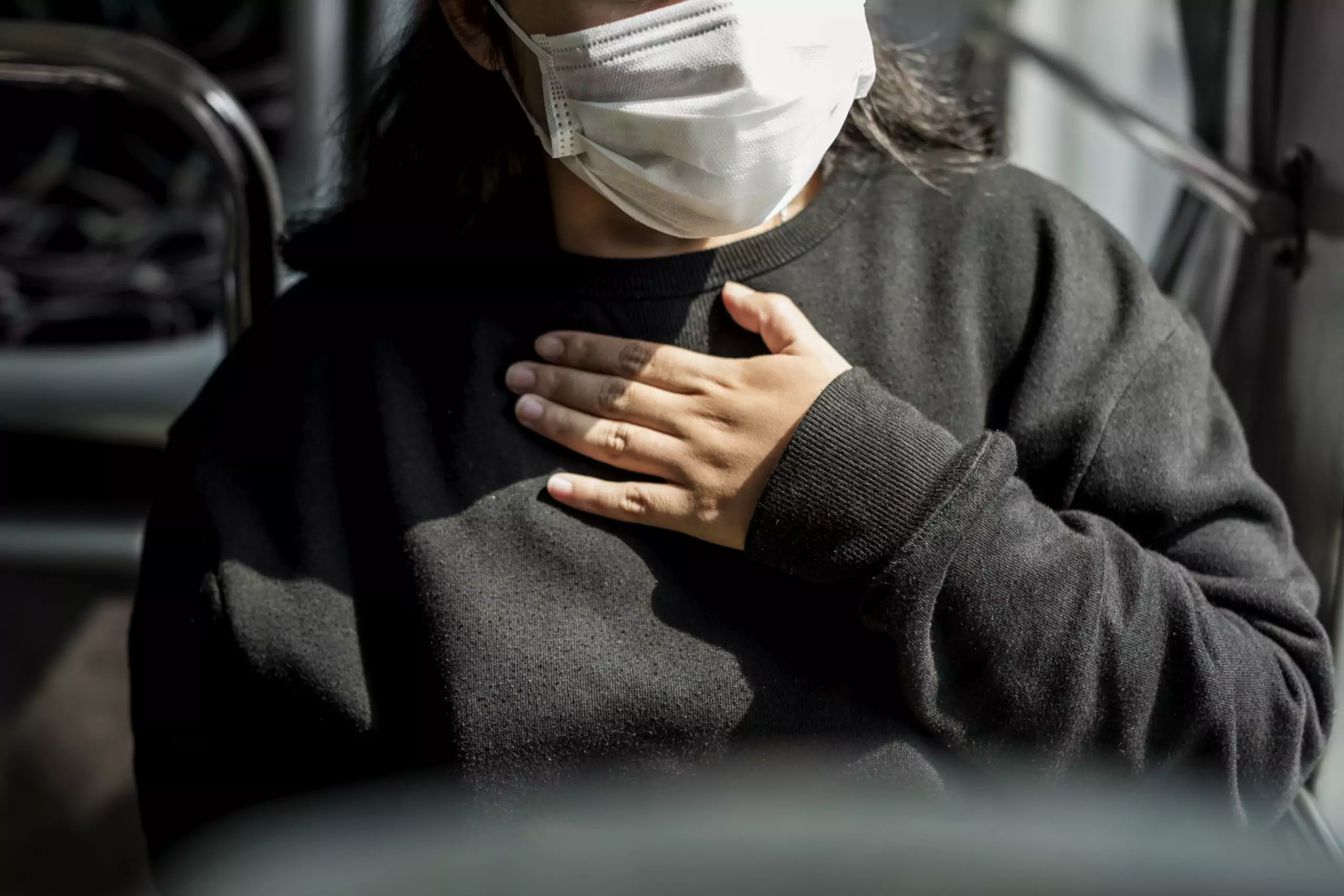What Are the Symptoms of Long COVID?
Many people who have COVID-19 recover from an acute reaction, or acute illness, within a couple of weeks and return to normal health status. Other patients, however, are continuing to experience symptoms afterward for an indeterminate amount of time. These people are said to be experiencing post-COVID-19 syndrome, or long COVID, and they are typically referred to as COVID long-haulers. Learn more about what symptoms we know of so far that are commonly associated with long COVID.
What are some common symptoms of long COVID?

A persistent cough is a common symptom of long COVID.
(This image is from Freepik.)
Frequently reported long-term, or post-COVID, symptoms include:
- Fatigue
- Shortness of breath
- Cough
- Joint and muscle pain
- Chest pain
- Headache
- Intermittent fever
- Heart palpitations
Some less common, but potentially more serious, long-term complications that have been reported are:
- Heart inflammation and damage
- Lung tissue scarring and functional abnormalities
- Acute kidney injury (AKI)
- Blood clots, weakened blood vessels, and vessel leakage
- Strokes, seizures, and Guillain-Barre syndrome
- Other neurological issues, such as smell and taste problems, sleep issues, difficulty concentrating, and memory problems
- PTSD, depression, anxiety, and mood swings
- Unexplained skin rash and hair loss
What else do we know about the long-term effects of the novel coronavirus?
A study by the Patient-Led Research Collaborative showed that:
- 70% of participants experienced fluctuations in the type of symptoms and 89% reported fluctuations in the intensity of symptoms.
- Of the 9.4% of participants who had recovered, the average length of being symptomatic was 27 days.
- Participants who had not recovered reported experiencing symptoms for an average of 40 days.

COVID long-haulers may experience short- and/or long-term lung damage.
(This image is by @rawpixel.com on Freepik.)
On a PBS special, called “Medical community scrambles to understand COVID-19 ‘long haulers’,” much of the damage doctors are seeing is linked with vascular damage from the loss and restructuring of lung tissue caused by the disease. “There are tens of millions of people who are COVID survivors who might be carrying this vascular damage in their bodies with them going forward, and we can’t leave those people behind,” said Dr. William Li.
Should I report any new COVID long-hauler symptoms?
All long COVID symptoms and their effects are not yet known. New long COVID symptoms are being documented on an ongoing basis, so the terrain keeps changing. Some of the resulting complications have been continuous, and others have appeared suddenly. As such, it’s important that patients continue to report new symptoms to their healthcare providers.
If you’ve had COVID-19, your doctor will likely want to monitor your health closely. In the meantime, you should continue to:
- Wash your hands.
- Wear a mask.
- Avoid crowded and/or public places, especially indoors.
Are you a COVID-19 long-hauler? Stay up-to-date on the latest news about long COVID on Responsum for Long COVID.


